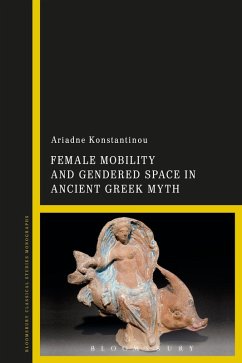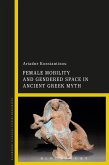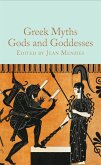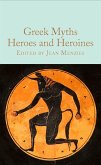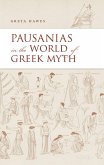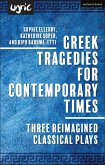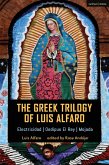Women's mobility is central to understanding cultural constructions of gender. Regarding ancient cultures, including ancient Greece, a re-evaluation of women's mobility within the household and beyond it is currently taking place. This invites an informed analysis of female mobility in Greek myth, under the premise that myth may open a venue to social ideology and the imaginary.
Female Mobility and Gendered Space in Ancient Greek Myth offers the first comprehensive analysis of this topic. It presents close readings of ancient texts, engaging with feminist thought and the 'mobility turn'. A variety of Olympian goddesses and mortal heroines are explored, and the analysis of their myths follows specific chronological considerations. Female mobility is presented in quite diverse ways in myth, reflecting cultural flexibility in imagining mobile goddesses and heroines. At the same time, the out-of-doors spaces that mortal heroines inhabit seem to lack a public or civic quality, with the heroines being contained behind 'glass walls'. In this respect, myth seems to reproduce the cultural limitations of ancient Greek social ideology on mobility, inviting us to reflect not only on the limits of mythic imagination but also on the timelessness of Greek myth.
Female Mobility and Gendered Space in Ancient Greek Myth offers the first comprehensive analysis of this topic. It presents close readings of ancient texts, engaging with feminist thought and the 'mobility turn'. A variety of Olympian goddesses and mortal heroines are explored, and the analysis of their myths follows specific chronological considerations. Female mobility is presented in quite diverse ways in myth, reflecting cultural flexibility in imagining mobile goddesses and heroines. At the same time, the out-of-doors spaces that mortal heroines inhabit seem to lack a public or civic quality, with the heroines being contained behind 'glass walls'. In this respect, myth seems to reproduce the cultural limitations of ancient Greek social ideology on mobility, inviting us to reflect not only on the limits of mythic imagination but also on the timelessness of Greek myth.

